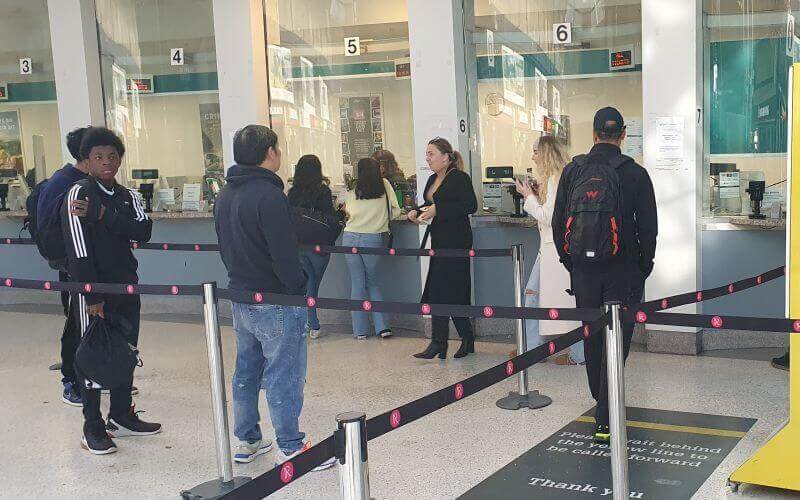The government has refused to release its assessment of how plans to close nearly 1,000 ticket offices across England would have affected disabled people and other groups protected under the Equality Act, even though those proposals have now been abandoned.
The Department for Transport (DfT) is claiming the decision not to release the assessment is in the public interest and that releasing it could undermine the commercial interests of train companies.
But the disabled-led campaigning organisation Transport for All (TfA) said this week that these excuses were just a “smokescreen” to prevent significant government failings being revealed and to stop future reforms being undermined.
TfA believes the information in the equality impact assessment (EIA) would have shown how similar future proposals could have “negative impacts” on disabled rail passengers.
DfT had rejected a previous freedom of information request by TfA to see the document, arguing that it could be used to “formulate” government policy if passenger watchdogs objected to any of the proposed closures and train companies decided to ignore those objections.
Weeks later, transport secretary Mark Harper announced that ministers had asked train operators to withdraw their closure plans, reversing the government’s previous position supporting the closures.
Disability News Service submitted a fresh freedom of information request after the proposals were abandoned, but Harper’s department confirmed this week that it was still refusing to release the EIA.
It claimed its decision was still in the public interest.
DfT argued – as it had last year – that the scope of the EIA was “wider than just the proposal to close station ticket offices” as it also covered “other aspects of the stations reform policy that are subject to ongoing consideration by the Department”.
DfT also argued that train operating companies – and their Rail Delivery Group umbrella organisation – would be “less likely to share commercially sensitive information” if the EIA was released.
And it suggested that information within the EIA could undermine the position of the train companies in their ongoing negotiations with trade unions on “modernisation of employment terms and conditions and roles”.
The DfT civil servant who reviewed the decision not to release the EIA concluded: “I should reiterate that the Department does fully recognise that there is a strong public interest in favour of disclosure of the equality impact assessment, and once the policy on station reform has been settled, we expect to be able to disclose it.”
But Ezra Johnson, campaigns and communications officer for Transport for All, said: “We continue to disagree with the refusal of freedom of information requests on live policy formulation grounds, as it means vital information is not disclosed at the right time to the very people who would be most impacted.
“In this case, we suspect that the EIA would not only reveal significant failings on the government’s part during the ticket office process, but would also highlight the scope for future, similar proposals to have their own negative impacts.”
He added: “We maintain that the government should have released the documents during the consultation period, so the public could make an informed decision.
“We’re also concerned that some of the disastrous ‘mitigations’ in the original proposals could still be under consideration, and without publication of the impact assessment there can’t be a transparent assessment of the consequences.”
These mitigations included the increased use of mobile staff teams that would cover multiple stations, and an “increasingly heavy reliance” on digital ticketing and information finding “without meaningful offline alternatives”.
He added: “Ultimately, industry have admitted that the ticket office closures were designed to save money.
“While ticket offices have been saved for now, industry and government are likely to be looking at how they can cut spending in other ways.
“We have to remain vigilant, and ensure that any other projects being proposed under the banner of ‘rail modernisation’ will actually benefit our community, rather than being a smokescreen for more cuts, fewer staff, and a less equal treatment of disabled passengers.”
A note from the editor:
Please consider making a voluntary financial contribution to support the work of DNS and allow it to continue producing independent, carefully-researched news stories that focus on the lives and rights of disabled people and their user-led organisations.
Please do not contribute if you cannot afford to do so, and please note that DNS is not a charity. It is run and owned by disabled journalist John Pring and has been from its launch in April 2009.
Thank you for anything you can do to support the work of DNS…

 Making all self-driving pilot schemes accessible would be ‘counter-productive’ and slow us down, says minister
Making all self-driving pilot schemes accessible would be ‘counter-productive’ and slow us down, says minister Government’s ‘weak’ response to damning transport access report puts right to travel in ‘grave danger’
Government’s ‘weak’ response to damning transport access report puts right to travel in ‘grave danger’ Self-driving taxis that are not accessible will be allowed pilot scheme licenses, government suggests
Self-driving taxis that are not accessible will be allowed pilot scheme licenses, government suggests